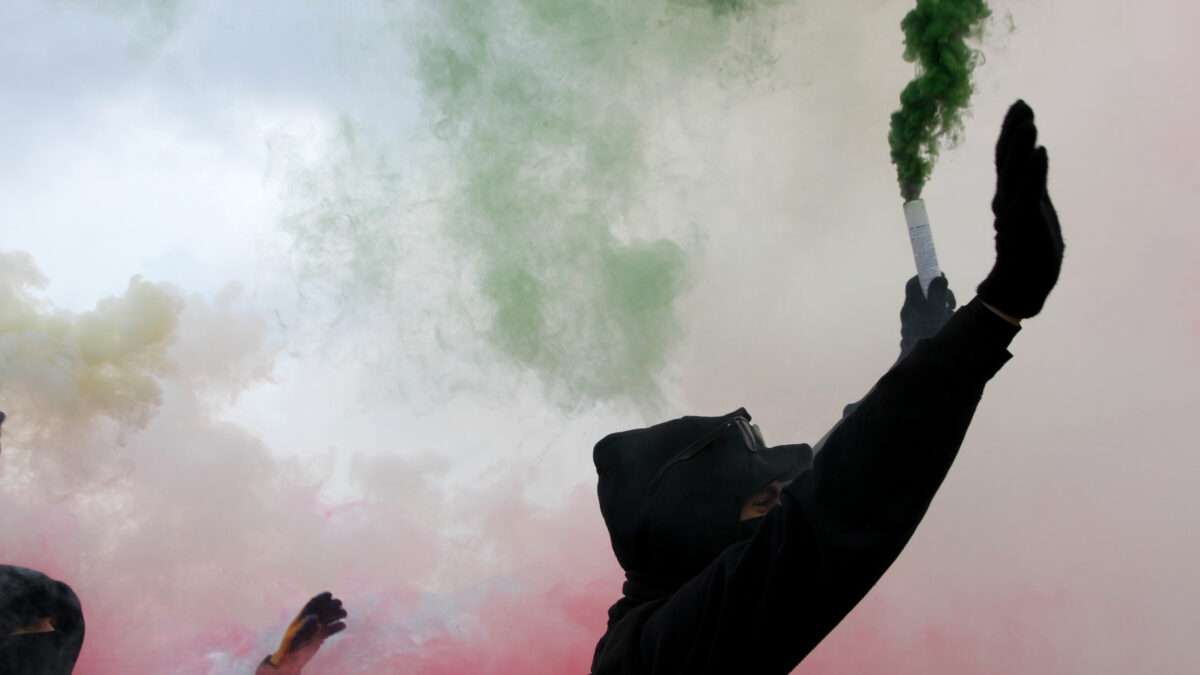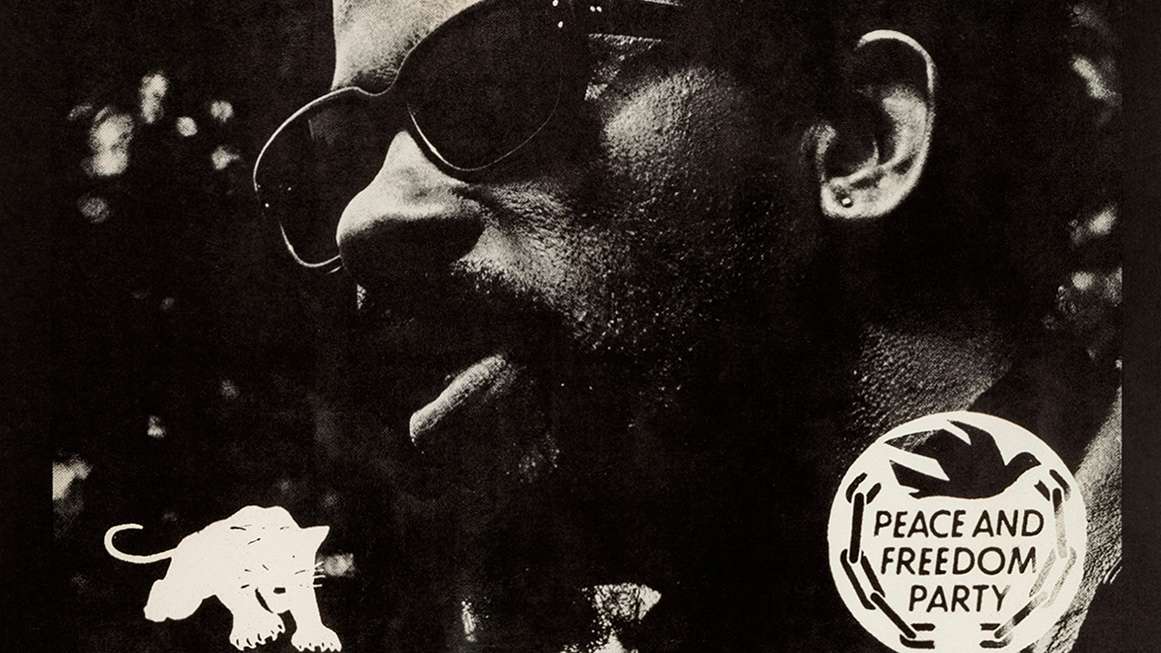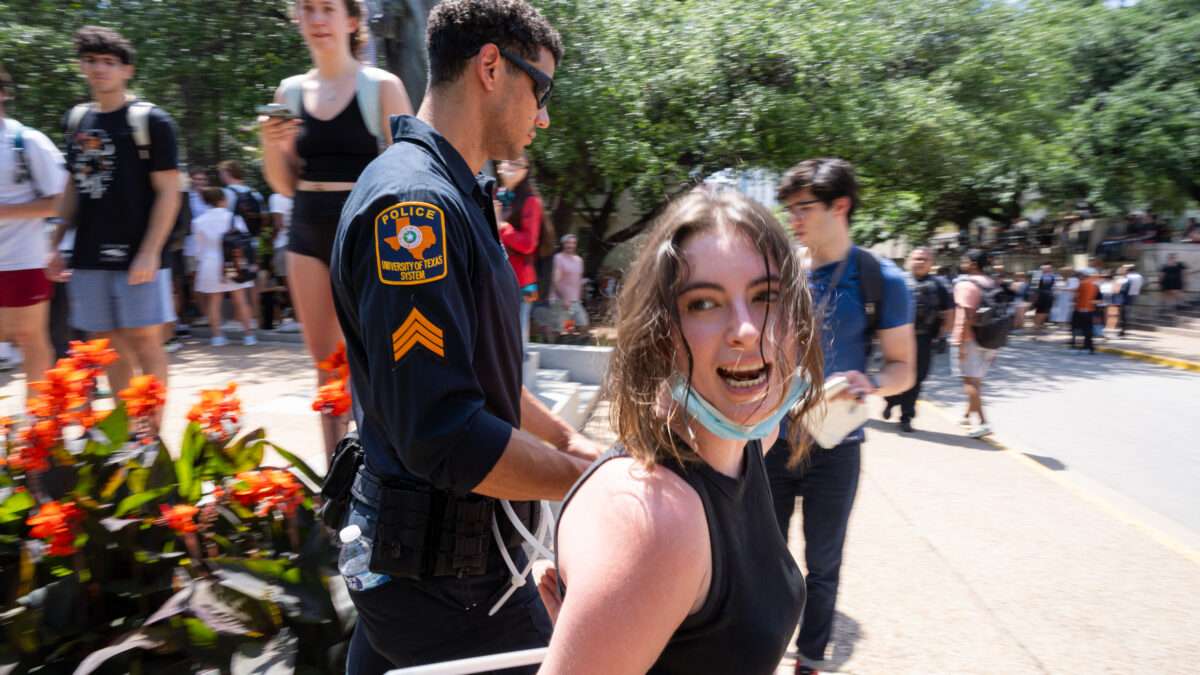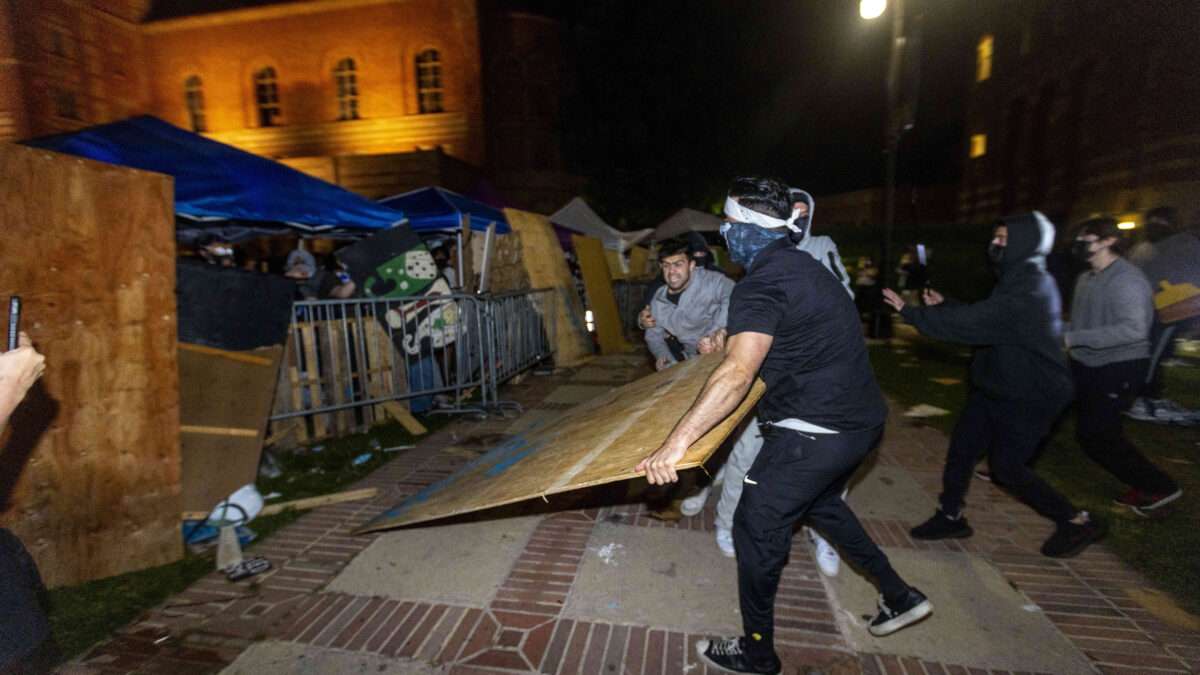The Wave of Political Violence Has No End in Sight

The recent attempted assassination of Republican presidential hopeful Donald Trump, which resulted in the death of one rally attendee and injuries to the candidate and two others, was not an isolated event. The high profile incident occurred against a backdrop of lower-level attacks and violent protests across the country that indicate too many Americans are increasingly willing to exchange battles over ideas for fists, bullets, and firebombs. It's a sign of an existential political climate in which nobody thinks they can afford to lose—or that opponents can be allowed to win.
Not-So-Isolated Incidents
"A Michigan man used an all-terrain vehicle to run over and critically injure an 80-year-old man who was putting a Trump sign in his yard, in what police have described as a politically motivated attack," the BBC reported July 23. The apparent attacker killed himself after calling police to confess to the crime.
Just days later, anti-Israel protesters vandalized property and battled police in Washington, D.C. in what has become almost a matter of routine.
The partisan Michigan attacker, the mysteriously motivated would-be assassin, and the subset of protesters who cross the line don't really represent mass endorsements of violence. They're often lone actors or extremists within their own movements. But no majority vote is required before people and property are attacked. It just takes somebody willing to get physical, and too many meet that bar.
Politics Plagued by a Violent Minority
Last month, the University of Chicago's Robert A. Pape, a professor of political science who studies political violence, released the results of a study on Americans' attitudes towards using violent means to achieve political ends. What he found is that 10 percent of respondents agree "the use of force is justified to prevent Donald Trump from becoming president." Opposing them are 6.9 percent of respondents who agree "the use of force is justified to restore Donald Trump to the presidency."
When questions about justifying violence are given broader scope, researchers find larger numbers open to its use. Last year a study from the Violence Prevention Research Program at the University of California, Davis found "one-third of respondents…considered violence to be usually or always justified to advance at least 1 of 17 specific political objectives," including preventing discrimination based on race or ethnicity and preserving an American way of life based on Western European traditions.
The good news is that even the larger numbers still represent a minority of the population, outnumbered by those who prefer to keep bullets and bombs out of their political discourse. The bad news is it only takes one person to target a candidate or run over a homeowner putting a sign on his lawn. And it only takes one, or a handful, to stage any of the myriad lower-profile incidents that suggest we're in a cycle of political strife.
Rising Tide of Threats and Attacks
In March, a California man pled guilty to firebombing a Costa Mesa Planned Parenthood clinic—the third suspect to do so in that crime. They had planned other attacks that were thwarted by their arrests.
In January, the Center of the American Experiment, the Upper Midwest Law Center, and TakeCharge—three Minnesota conservative groups—were targeted by arsonists in what was believed to be an act of political terrorism. The organizations are offering a $100,000 reward "for information leading to the arrest and conviction of the individual or individuals who started the arson fires."
A car belonging to a Portland, Oregon, city commissioner's family was torched outside his home just weeks before that. In response, Multnomah County District Attorney Mike Schmidt warned "acts of political violence and acts of political vandalism are unacceptable and will not be tolerated."
Gonzalez is far from alone in being violently targeted by people who disagree with him.
"The number of threats to public officials is growing," according to a May data review from the Combating Terrorism Center at West Point. "While 2013-2016 had an average of 38 federal charges per year, that number sharply increased to an average of 62 charges per year between 2017-2022."
The review added that ideological motivations could be confirmed for roughly half the cases, and that "the number of federal prosecutions is on pace to hit new record highs" this year.
High Stakes Politics and Rising Illiberalism
Much of this is the result of the rising tensions of recent years. Political factions have gone from opposing each other to despising each other and considering opponents too vile and dangerous to be allowed to win office and exercise power. That political leaders tear not just into each other, but into whole segments of the population they perceive as alien understandably reinforces fears of the criminal justice system and the regulatory state in the hands of enemies.
Added to that is the abandonment of liberal ideas about restrained government and tolerance by both the left and the right. In their place are thuggish ideologies that leave little room for dissent.
"On the left, a new crop of socialists hope to overthrow the liberal economic order, while the rise of intersectional identity politics has supplanted longstanding commitments to civil liberties," Reason's Stephanie Slade wrote in 2022. "On the right, support for free markets and free trade are more and more often derided as relics of a bygone century, while quasi-theocratic ideas are gathering support."
That creates an environment in which violence might become just another tactic for people who consider their causes of overriding importance. In January, The New York Times interviewed Andreas Malm, a celebrity activist who advocates for political violence on behalf of climate causes. He clarifies that he supports targeting property, not people, but "can't guarantee that it won't come with accidents."
He also thinks his opponents shouldn't be allowed to use the same tactics in return, saying "the idea that if you object to your enemy's use of a method, you therefore also have to reject your own use of this method would lead to absurd conclusions."
Malm, it should be noted, is Swedish. And that points to the fact that America isn't alone in seeing activists adopt violence as a preferred means of achieving results.
"American political violence has much in common with that taking place in Germany and India, as well as in France's most recent election," Rachel Kleinfeld recently noted in Foreign Affairs.
Shared misery is cold comfort, but it may be the only kind available right now.
The post The Wave of Political Violence Has No End in Sight appeared first on Reason.com.





